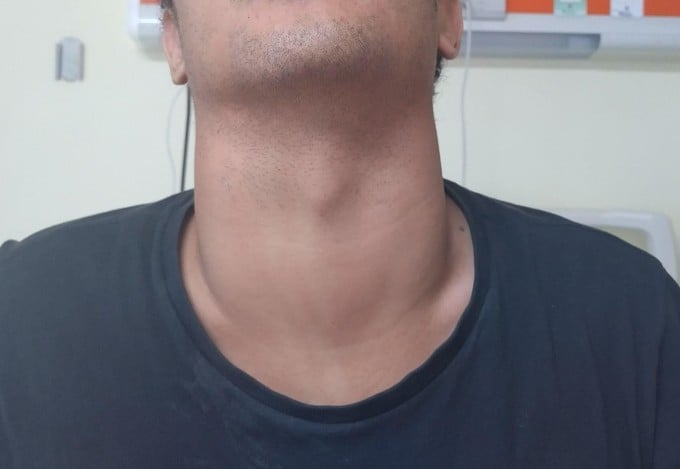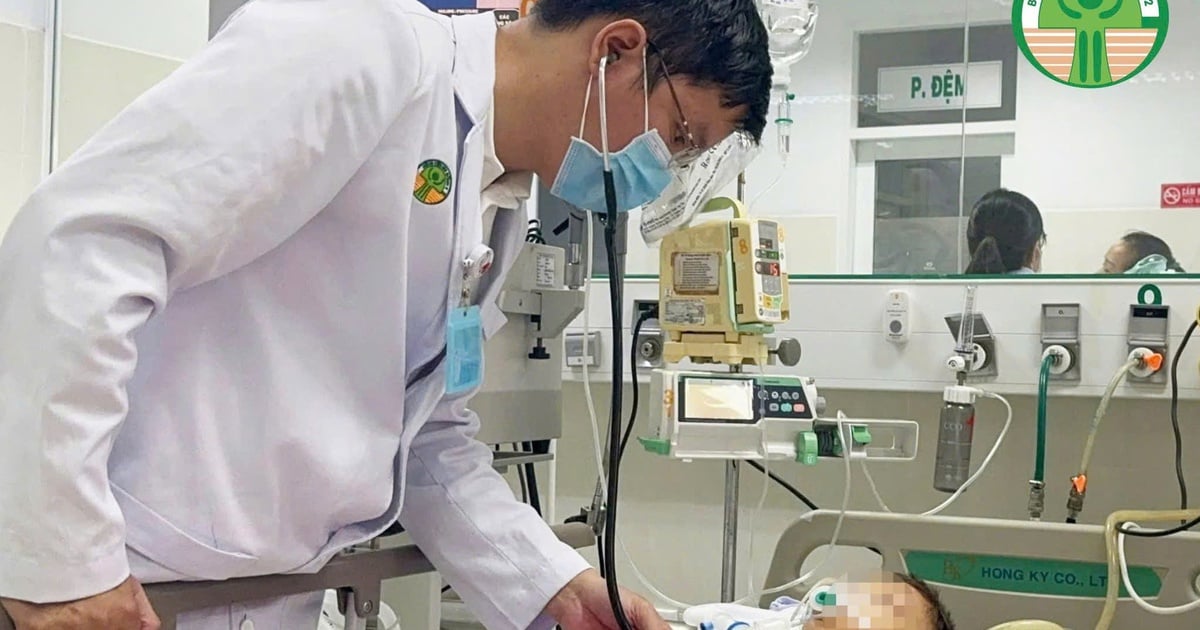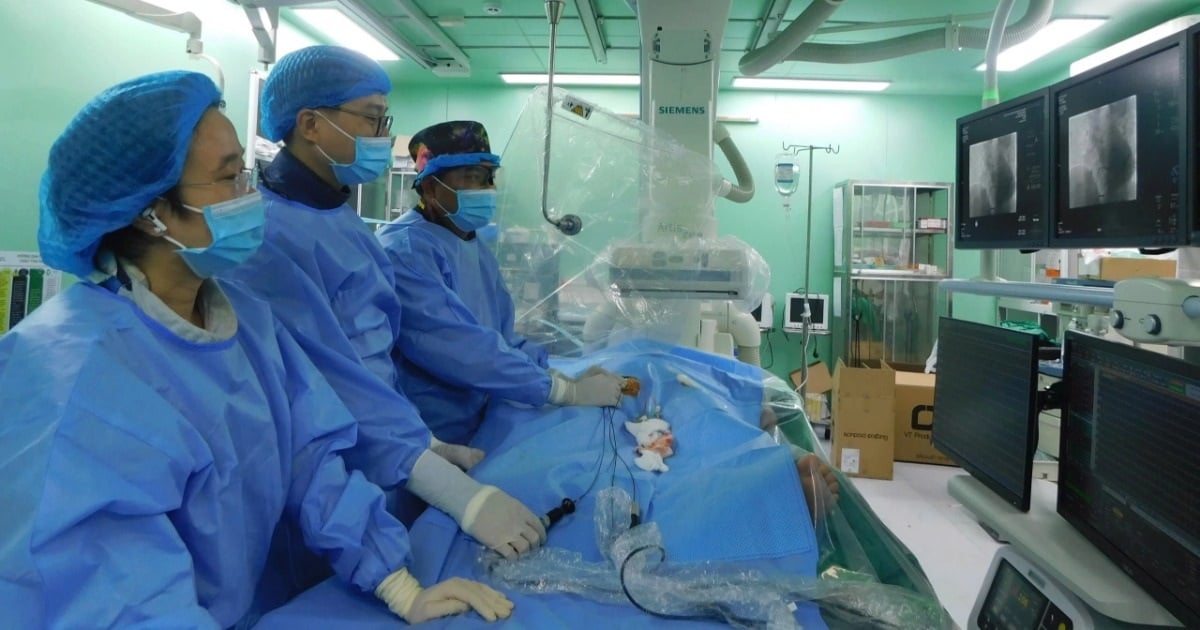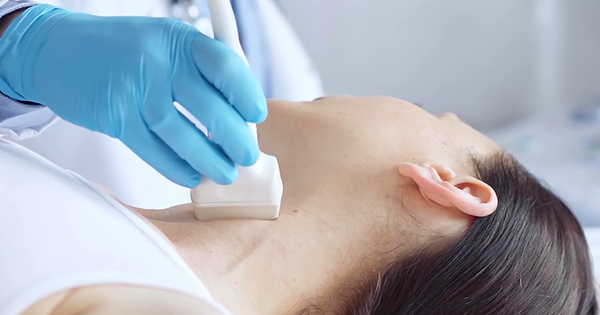Ho Chi Minh City: A 35-year-old patient with hyperthyroidism, thyroid hormone decreased 54-840 times normal, causing heart rhythm disturbances, at risk of heart failure due to forgetting to take medication.
Mr. Tran Phuoc Tuan (District 8) said that he had been suffering from hyperthyroidism (overproduction of thyroid hormones) for nearly a year but often forgot to take his medicine because he had to wake up early to sell goods at the market. On May 22, he felt tired and his heart was beating fast. He thought he had worked too hard so he went home to rest but it did not help. He continued to have weak limbs and a weak body so his family took him to the hospital for emergency treatment.
Dr. Ton Minh Tri (Emergency Department, Tam Anh General Hospital) ordered the necessary tests. The results showed a rapid heart rate (173 beats per minute), important thyroid hormones such as TSH at 0.005 microIU/ml, down 54-840 times; T3, T4 hormones increased 6-12 times, 4-8 times compared to normal. Through thyroid ultrasound, the doctor diagnosed the patient with bilobed thyroid nodules at level 2-3 (in 5 levels of thyroid damage).
Doctor Tri determined that the patient had complications of hyperthyroidism causing arrhythmia, atrial flutter (a type of rapid heart rhythm disorder) and hypotension. If not treated promptly, the patient could form a blood clot in the atrium and cause embolism, with a high risk of heart failure and death. Through echocardiography and chest X-ray, the heart had not yet lost its contractility and there were no signs of pulmonary edema. The doctor gave the patient medication to slow the heart rate, and within two hours the heart rate was almost back to normal.
Dr. Vo Tran Nguyen Duy (Department of Endocrinology - Diabetes) said that Mr. Tuan had typical symptoms of Basedow's disease (one of the typical diseases of hyperthyroidism) such as increased secretion of thyroid hormones and progression to diffuse goiter. The patient had hyperthyroidism for nearly a year but was not well controlled, often forgot to take medication leading to atrial fibrillation. After two days of treatment to stabilize the hyperthyroidism, the heart no longer beat fast, the patient was discharged from the hospital and needed regular check-ups.
Mr. Tuan said that in 2021, his twin sister was diagnosed with hyperthyroidism and had surgery. In 2022, when he went for a general check-up, he was also diagnosed with hyperthyroidism even though he had no unusual signs. Two months later, his neck showed signs of swelling. In the next few months, the goiter continued to swell and spread, becoming clearly visible. He went back for a check-up and the doctor continued to prescribe medication. He said that the goiter was large but he did not feel uncomfortable, could eat and drink normally, and could swallow without difficulty.

The patient's thyroid gland is enlarged. Photo: Dinh Tien
According to Dr. Duy, depending on the condition of the hyperthyroid patient, the doctor will choose the most appropriate treatment method. Initially, the patient is given antithyroid drugs (drugs that help the thyroid gland reduce hormone secretion) and radioactive iodine. If the above two methods do not respond well, the patient will undergo surgery. Hyperthyroid patients need to have a reasonable diet, limiting foods containing a lot of iodine, especially agar and seaweed. To detect and treat thyroid disease early, people should have regular health check-ups. Patients with thyroid problems need to follow the treatment as prescribed by their doctor.
Dinh Tien
* Patient's name has been changed.
Source link































































































Comment (0)